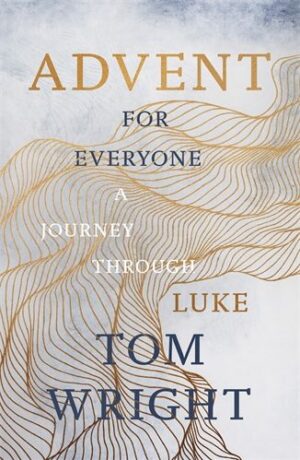



Mary’s Song of Praise: Luke 1.39–55
Mary got up then and there, and went in excitement to the hill country of Judaea. 40She went into Zechariah’s house, and greeted Elisabeth. 41When Elisabeth heard Mary’s greet- ing, the baby gave a leap in her womb. Elisabeth was filled with the holy spirit, 42and shouted at the top of her voice: ‘Of all women, you’re the blessed one! And the fruit of your womb – he’s blessed, too! 43Why should this happen to me, that the mother of my Lord should come to me? 44Look – when the sound of your greeting came to my ears, the child in my womb gave a great leap for joy! 45A blessing on you, for believing that what the Lord said to you would come true!’
46 Mary said, ‘My soul declares that the Lord is great, 47 my spirit exults in my saviour, my God. 48 He saw his servant-girl in her humility; from now, I’ll be blessed by all peoples to come. 49 The Powerful One, whose name is Holy, has done great things for me, for me. 50 His mercy extends from father to son, from mother to daughter for those who fear him. 51 Powerful things he has done with his arm: he routed the arrogant through their own cunning. 52 Down from their thrones he hurled the rulers, up from the earth he raised the humble. 53 The hungry he filled with the fat of the land, but the rich he sent off with nothing to eat.He has rescued his servant, Israel his child, because he remembered his mercy of old, 55 just as he said to our long-ago ancestors – Abraham and his descendants for ever.’
And if you lived in any kind of culture where rhythm and beat mattered, it would be the sort of song you could clap your hands to, or stamp on the ground.
What would make you celebrate wildly, without inhib- ition?
Now read Mary’s song like that. (It’s often called the Magnificat, because that is its first word in Latin.) It’s one of the most famous songs in Christianity. It’s been whispered in monasteries, chanted in cathedrals, recited in small remote churches by evening candlelight, and set to music with trumpets and kettledrums by Johann Sebastian Bach.
Perhaps it would be the news that someone close to you who’d been very sick was getting better and would soon be home.
Perhaps it would be the news that your country had escaped from tyranny and oppression, and could look forward to a new time of freedom and prosperity.
Perhaps it would be the message that all your money worries, or business worries, had been sorted out and you could relax.
Whatever it might be, you’d do things you normally wouldn’t.
You might telephone everybody you could think of and invite them to a party.
You might sing a song. You might even make one up as you went along – probably out of snatches of poems and songs you already knew, or perhaps by adding your own new words to a great old hymn.
And if you lived in any kind of culture where rhythm and beat mattered, it would be the sort of song you could clap your hands to, or stamp on the ground.
Now read Mary’s song like that. (It’s often called the Magnificat, because that is its first word in Latin.) It’s one of the most famous songs in Christianity. It’s been whispered in monasteries, chanted in cathedrals, recited in small remote churches by evening candlelight, and set to music with trumpets and kettledrums by Johann Sebastian Bach.
It’s the gospel before the gospel, a fierce bright shout of triumph 30 weeks before Bethlehem, 30 years before Calvary and Easter. It goes with a swing and a clap and a stamp. It’s all about God, and it’s all about revolution. And it’s all because of Jesus – Jesus who’s only just been conceived, not yet born, but who has made Elisabeth’s baby leap for joy in her womb and has made Mary giddy with excitement and hope and triumph. In many cultures today, it’s the women who really know how to celebrate, to sing and dance, with their bodies and voices saying things far deeper than words. That’s how Mary’s song comes across here.
Yes, Mary will have to learn many other things as well. A sword will pierce her soul, she is told when Jesus is a baby. She will lose him for three days when he’s 12. She will think he’s gone mad when he’s 30. She will despair completely for a further three days in Jerusalem, as the God she now wildly celebrates seems to have deceived her (that, too, is part of the same Jewish tradition she draws on in this song). All of us who sing her song should remem- ber these things too.
Why did Mary launch into a song like this? What has the news of her son got to do with God’s strong power
overthrowing the power structures of the world, demol- ishing the mighty and exalting the humble?
Mary and Elisabeth shared a dream. It was the ancient dream of Israel: the dream that one day all that the prophets had said would come true. One day Israel’s God would do what he had said to Israel’s earliest ancestors: all nations would be blessed through Abraham’s family. But for that to happen, the powers that kept the world in slavery had to be toppled. Nobody would normally thank God for blessing if they were poor, hungry, enslaved and miserable. God would have to win a victory over the bul- lies, the power-brokers, the forces of evil which people like Mary and Elisabeth knew all too well, living as they did in the dark days of Herod the Great, whose casual bru- tality was backed up with the threat of Rome. Mary and Elisabeth, like so many Jews of their time, searched the scriptures, soaked themselves in the psalms and prophetic writings which spoke of mercy, hope, fulfilment, reversal, revolution, victory over evil, and of God coming to the rescue at last.
All of that is poured into this song, like a rich, foam- ing drink that comes bubbling over the edge of the jug and spills out all round. Almost every word is a biblical quotation such as Mary would have known from child- hood. Much of it echoes the song of Hannah in 1 Samuel 2, the song which celebrated the birth of Samuel and all that God was going to do through him. Now these two mothers-to-be celebrate together what God is going to do through their sons, John and Jesus.
This is all part of Luke’s scene-setting for what will follow, as the two boys grow up and really do become the
agents of God’s long-promised revolution, the victory over the powers of evil. Much of Mary’s song is echoed by her son’s preaching, as he warns the rich not to trust in their wealth, and promises God’s kingdom to the poor.
But once again Luke hasn’t just given us a big picture. Mary’s visit to Elisabeth is a wonderful human portrait of the older woman, pregnant at last after hope had gone, and the younger one, pregnant far sooner than she had expected. That might have been a moment of tension: Mary might have felt proud, Elisabeth perhaps resentful. Nothing of that happens. Instead, the intimate details: John, three months before his birth, leaping in the womb at Mary’s voice, and the holy spirit carrying Elisabeth into shouted praise and Mary into song.
Underneath it all is a celebration of God. God has taken the initiative – God the Lord, the saviour, the Powerful One, the Holy One, the Merciful One, the Faithful One. God is the ultimate reason to celebrate.
When was the last time you had cause to really celebrate?
What sorts of events make you want to jump for joy or throw a party?